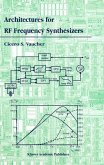The field of electronic packaging continues to grow at an amazing rate. To be successful in this field requires analytical skills, a foundation in mechanical engineering, and access to the latest developments in the electronics field. The emphasis for each project that the electronic packaging engineer faces changes from project to project, and from company to company, yet some constants should continue into the foreseeable future. One of these is the emphasis on ther mal design. Although just a few years ago thermal analysis of electronic equipment was an afterthought, it is becoming one of the primary aspects of many packaging jobs. It seems that the days of just adding a bigger fan to reduce the overheat ing problem are almost over. Replacing that thought is the up-front commitment to CFD (Computational Fluid Dynamics) software code, FEA (Finite Element Analysis) software, and the realization that the problem will only get worse. As the electronic circuit size is reduced, speed is increased. As the power of these systems increases and the volume allowed diminishes, heat flux or density (heat per unit area, W/m 2 or Btulh ft2) has spiraled. Much of the improvement in the reliability and packaging density of electronic circuits can be traced to advances in thermal design. While air cooling is still used extensively, advanced heat transfer techniques using exotic synthetic liquids are becoming more prominent, allowing still smaller systems to be manufactured. The appli cation of advanced thermal management techniques requires a background in fluid dynamics.
Hinweis: Dieser Artikel kann nur an eine deutsche Lieferadresse ausgeliefert werden.
Hinweis: Dieser Artikel kann nur an eine deutsche Lieferadresse ausgeliefert werden.








